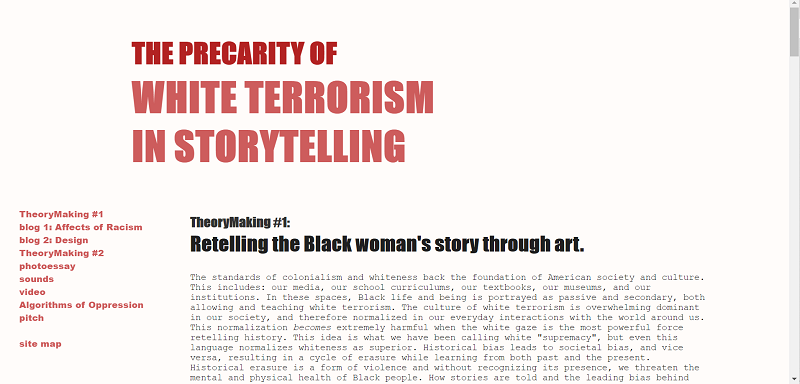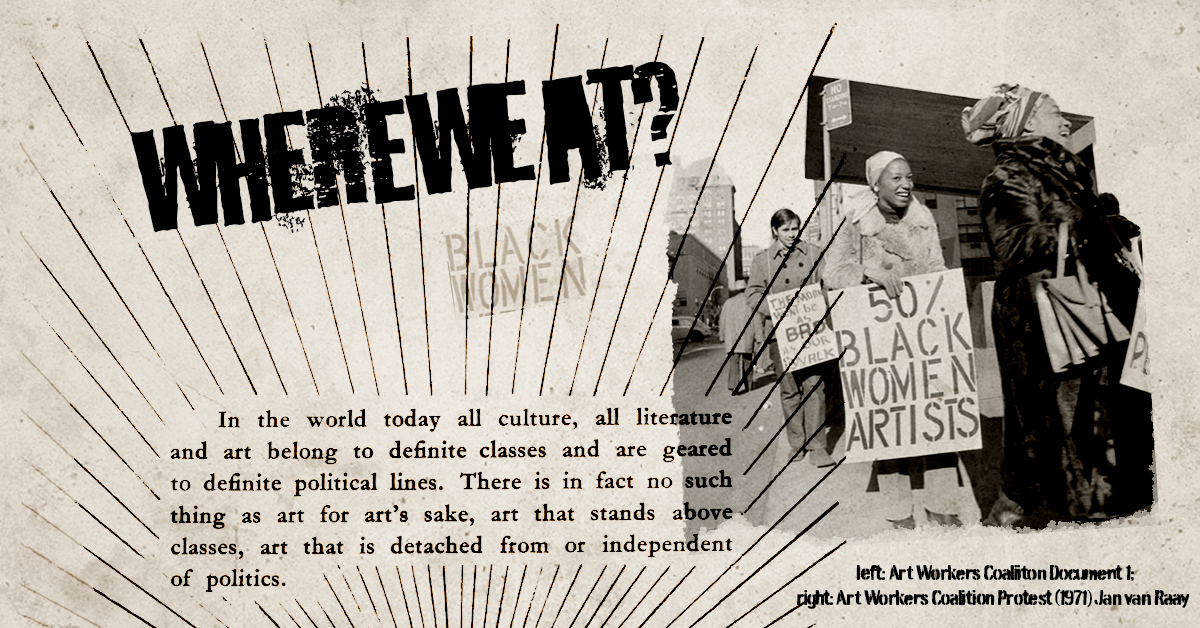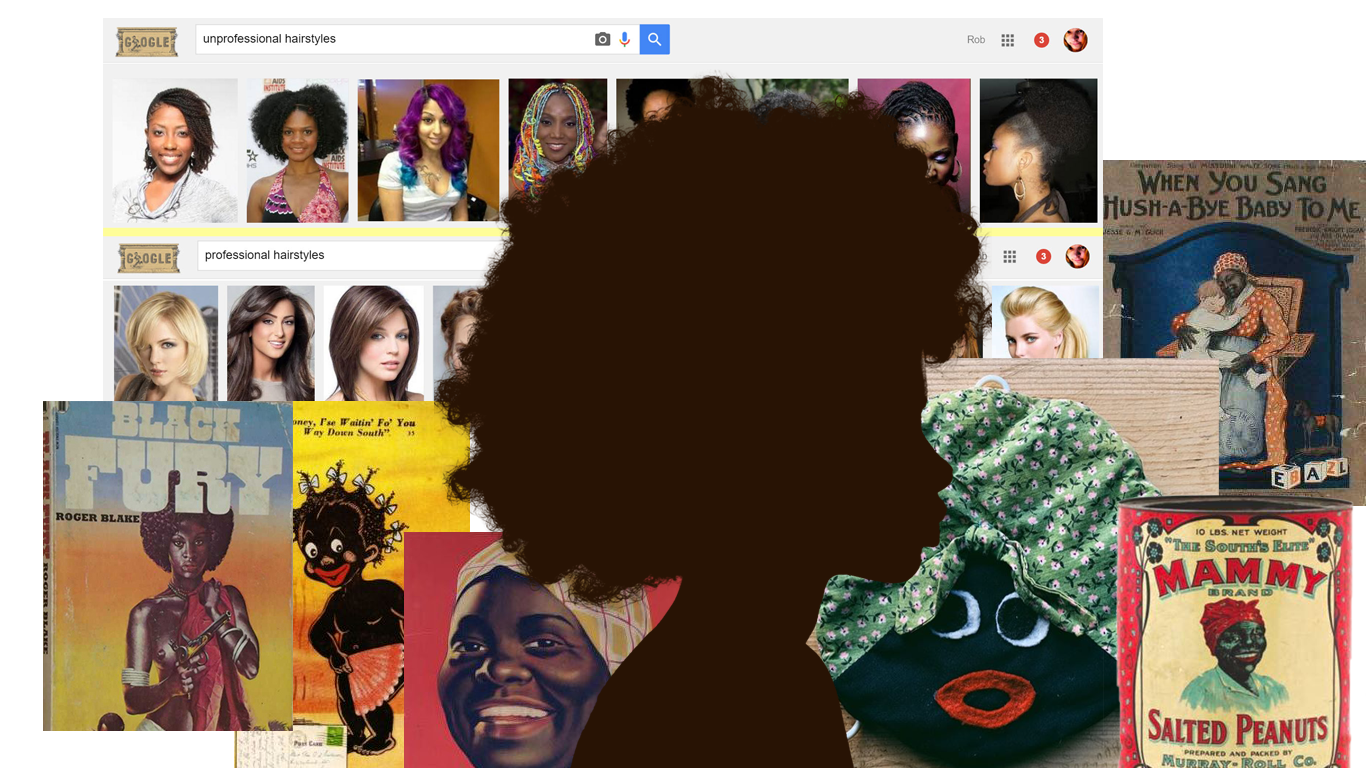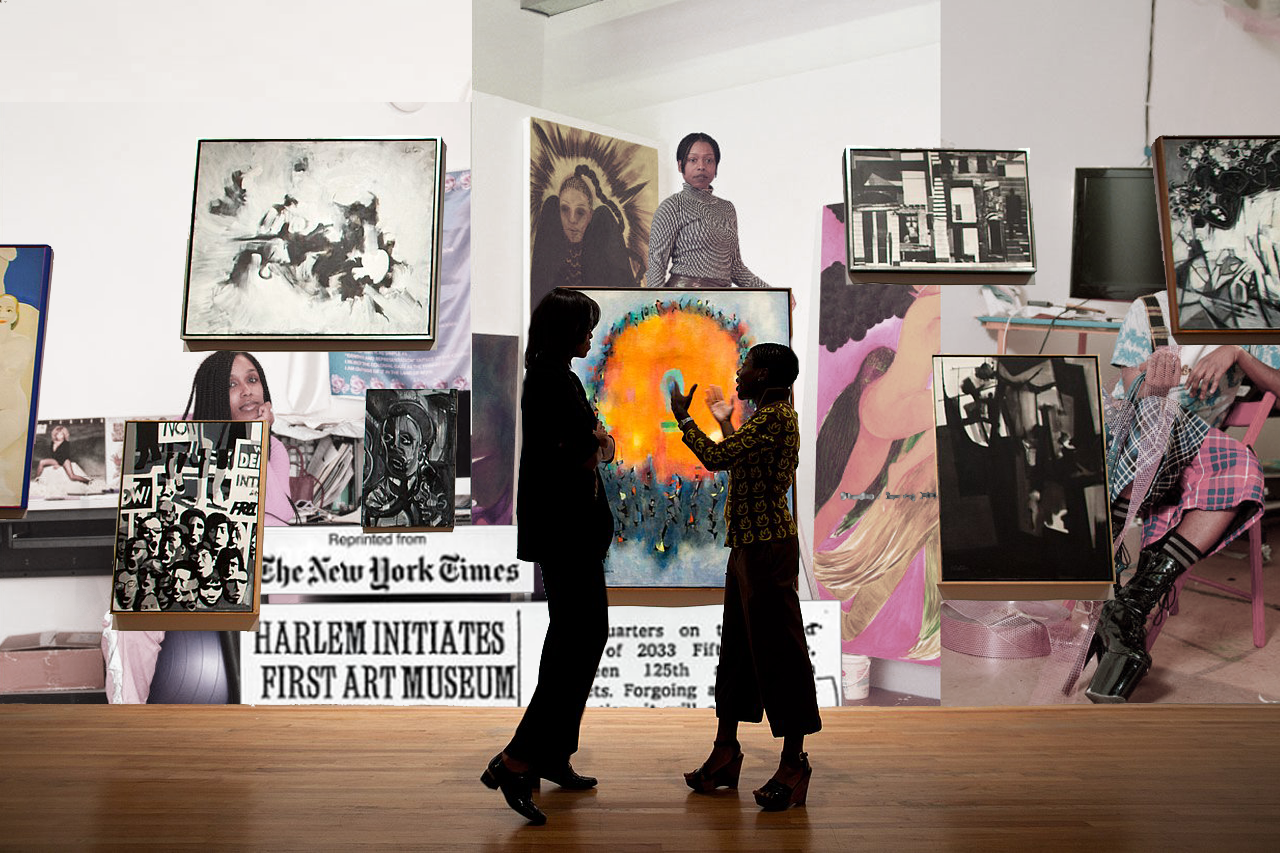︎︎︎
what if the power held in the informal knowledge gained through archival media was used in cooperation with the community it strives to center?




The webiste for The Precarity of Homogeneous Narratives in Storytelling follows the beginnings of my research on Black narratives and archival spaces. My first website features photoshop creations, audio edits and a featured video. The media featured on this site explores the power of narrative and informal knowledge gained through archival media. Historically, these narratives were created in opposition to the wellness of Black people.
I started off my research thinking that Black curators, by definition, were creating their own spaces. In that, having the power to change narratives. I realized after 4 months of research, that these curators are not a full solution as they are still operating within a fragmented system.
After this project my core questions for moving into a new era of museum spaces were the following::
what about your community do you love? what change do you wish to see? (The Black School Process Deck)
Sankofa - What can the past allow me to create, in this moment, for our current realities and the future?
How do we move away from understanding Black history as “radical” education? How do we normalize discussions of “radical” Black history in spaces not deemed racial?
The Precarity of Homogeneous Narratives in Storytelling website media
︎︎︎ project video
︎︎︎ design intention blog post
︎︎︎ project audio
A Loving Archive, Can You Imagine? contact for full essay
excerpt: In Outlaw Culture: Resisting Representations (1994), hooks writes on love, in hopes of a “progressive cultural revolution”. In chapter 20, “Love as a Practice of Freedom”, hooks teaches the idea of a love ethic. Hooks urges us to separate ourselves and our culture from one of colonization through, "surrender[ing] participation in whatever sphere of coercive hierarchical domination we enjoy individual and group privilege." This includes surrendering our ties to museums as we know them. In this essay, I explore the museum’s past, present and future in the context of a love ethic. By examining love’s place in the museum, and where it lacks, weare able to re-imagine a future where places of informal learning do not stem from nor center colonialism.
software::
HTML/CSS, Photoshop, Audition, Premiere Pro, Wordpress
work in collaboration with::
Digital Media Theroy & Practice (Media, Culture and Communication course with Professor Jamie Skye Bianco, NYU)
Social Lives of Museums (Anthropology course with Dr. Urmila Mohan, NYU)
HTML/CSS, Photoshop, Audition, Premiere Pro, Wordpress
work in collaboration with::
Digital Media Theroy & Practice (Media, Culture and Communication course with Professor Jamie Skye Bianco, NYU)
Social Lives of Museums (Anthropology course with Dr. Urmila Mohan, NYU)